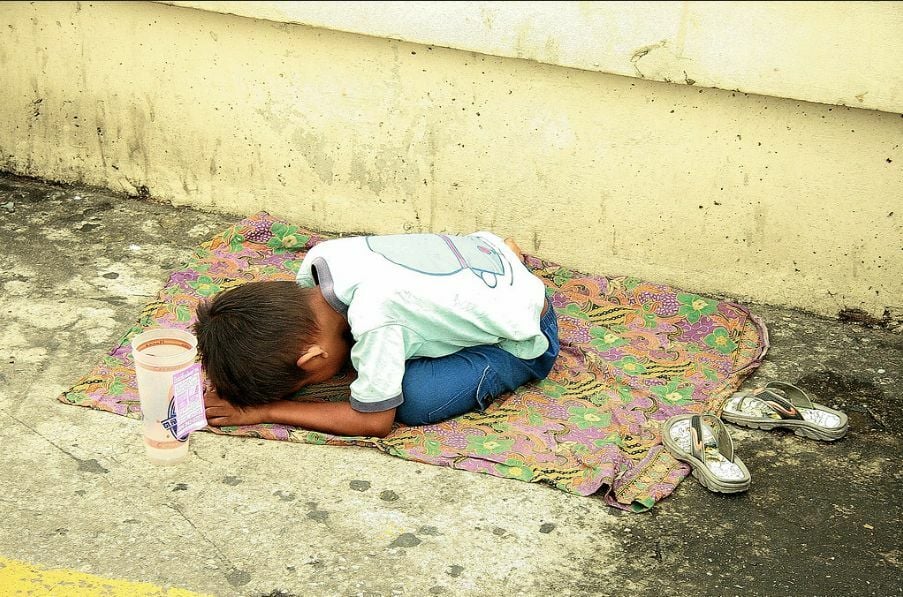Economic disparity in Thailand widens, agricultural sector hit hardest

The age-old struggle with economic disparity continues to cast a shadow on Thailand’s society as inequality widens, particularly in the agricultural sector, which sees roughly 6% to 8% of its populace remaining below the poverty line. According to a recent study by the Trade Policy and Strategy Office (TPSO), this disparity has been fuelled by multiple factors, including the move to a digital economy, an ageing society, post-Covid-19 economic recovery speed, and the burning issue of climate change.
TPSO’s director-general, Poonpong Naiyanapakorn, acknowledges that while the nation has experienced consistent economic growth, the distribution of that wealth remains a significant issue. The GDP enlarged from 7.7 trillion baht in 2008 to 10.2 trillion baht in 2021, yet economic inequality remained constant. Restating the United Nations’ (UN) sustainable development goals, Poonpong stressed the importance of both public and private sectors working cohesively to mitigate the economic disparity issue, which threatens the stability of Thailand’s societal and economic evolution.
Historically, the poverty-stricken population made up 65% in 1988, decreasing to 6.3% in 2021. Even then, the past ten years (2011 to 2021) have shown no significant reduction. Surprisingly, about 11% of households whose main income is from agriculture reside below the poverty line, drawing their line at an income of 2,802 baht per month per person.
When juxtaposed with ASEAN neighbours via the Gini coefficient, a concept to measure income inequality, Thailand finds companies in nations like Indonesia and Vietnam. However, wealth distribution is more balanced with a low economic disparity in developed East Asian countries like Japan and South Korea than in Thailand, reported Bangkok Post.
The study reveals socio-economic transformations such as the shift to a digital economy, growth of platform-based economies, adoption of labour-replacing technologies, and large-scale data processing to be principal drivers of economic disparity within the country. While these evolutionary steps provide opportunities for those proficient in technology, they concurrently pose challenges for the technologically disadvantaged, thereby adding to economic disparity.
Moreover, the UN postulates that Asia will bear the brunt of an increasing elderly population, especially those aged 65 and above, between 2019 and 2050. In this regard, Thailand ranks fifth in East Asia and Southeast Asia, committed to an average of 17.2% ageing populace during this period, following South Korea, Singapore, Taiwan, and Macau.
The National Economic and Social Development Council’s report claims that Thailand in 2021 was home to an estimated 13.8 million elderly citizens, making up 20% of the population. This proportion is expected to inflate further by 2040, reaching 31.3%.
Notably, an upsurge in the elderly population indicates a reciprocal decline in the workforce, thus creating a higher dependency ratio upon working-age people, being a significant contributor to economic disparity within the country.
In simultaneous occurrence, the country is treading the path to economic recovery post-pandemic. Nevertheless, economic growth has staggered since the contraction during the outbreak. Vulnerable groups, such as small-scale vendors who lost income owing to business closure during the pandemic, as well as employees and vulnerable persons, have been profoundly and persistently impacted. Poonpong emphasised that these are the groups the government should aid to promote swifter recovery and reduction in long-term economic disparity.
The exacerbating issue of climate change, leading to more frequent disasters like floods and droughts, has far-flung implications. These changes are anticipated to amplify Thailand’s economic disparity, as a substantial fraction of the poor and disadvantaged populace remains reliant on agriculture.
Poonpong concluded that tackling the economic disparity challenges urged government agencies, private sectors, and civil society to gear up and handle these changes collectively.
Latest Thailand News
Follow The Thaiger on Google News:


























